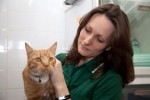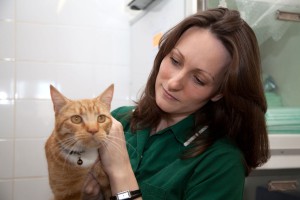The Royal College of Veterinary Surgeons (RCVS) has published its Surveys of the Veterinary and Veterinary Nursing Professions 2014.
As a snapshot of the current state of the veterinary and veterinary nursing professions, the results provide information on a number of different areas such as demographics; work status; job satisfaction and well-being. Furthermore, the results gauge individual views on the current state of the profession. This information is important for informing future RCVS policy and activities across a wide range of areas.
The four-yearly survey, carried out by the Institute for Employment Studies, was principally available online only this year, although hard copies were supplied on request.
This year’s surveys also included a set of questions about 24-hour emergency cover, which contributed to the recent review of RCVS guidance in this area, and, for the first time, questions from the government-backed Social Mobility Toolkit, which aim to assess the social background of members of the profession.
Some of the key results for veterinary nurses:
- There was a noticeable decrease in the proportion of veterinary nurses who are employed full-time – from 74.7% in 2010 to 67% this year. Full time work is less common amongst those under 20 (which includes students) and older VNs.
- Veterinary nurses are generally more positive about the profession this year compared to the 2010 survey. For example, 60% said they would choose to become a VN again if they started their career over, compared to 54% in 2010. However, poor pay and stress were highlighted as issues.
- There was a significant shift away from employer-funded CPD to free provision. In 2010, 57% of CPD provision was employer-funded (and in 2008 this stood at 84%), while this year, it was 43%. The proportion of free CPD has increased from 29% in 2010 to 41% this year.
- For student veterinary nurses, the proportion intending to remain employed at their Training Practice after qualification has fallen from 61% in 2010 to 52% this year.
Some of the key results for veterinary surgeons:
- For the first time, this year more than half (53.8%) of the respondents were women – in line with the long-term trend towards the ‘feminisation’ of the profession.
- Since the 2010 survey the share of respondents employed in mixed animal practices has declined from 22.1% to 15.8%, while the proportion of respondents employed in small animal/exotic practices has increased from 48.9% to 53.6% in the same period.
- The proportion of respondents in part-time work is currently at 19%, compared to 16% in 2010 and 14% in 2006. Female veterinary surgeons accounted for 73.2% of those in part-time work.
- Although over half (52%) of recently qualified veterinary surgeons went straight into practice work, some 17.8% reported they were unable to find employment after graduation – compared to 13.6% in 2010.
- Although almost 90% of respondents stated that veterinary work is stressful, a similar proportion said that veterinary work gives variety and over 80% said it provides job satisfaction. Other issues highlighted by respondents included the need for better pay and remuneration and the high demands placed on them by clients.
Both the Survey of the Veterinary Profession and the Survey of the Veterinary Nursing Profession, together with a report that brings together common themes, can be downloaded from the RCVS website.

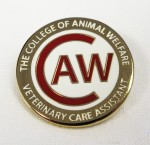 The College of Animal Welfare is delighted to announce that a new Veterinary Care Assistants (VCA) badge is now available to students who successfully complete its Level 2 Diploma for Veterinary Care Assistants programme.
The College of Animal Welfare is delighted to announce that a new Veterinary Care Assistants (VCA) badge is now available to students who successfully complete its Level 2 Diploma for Veterinary Care Assistants programme.
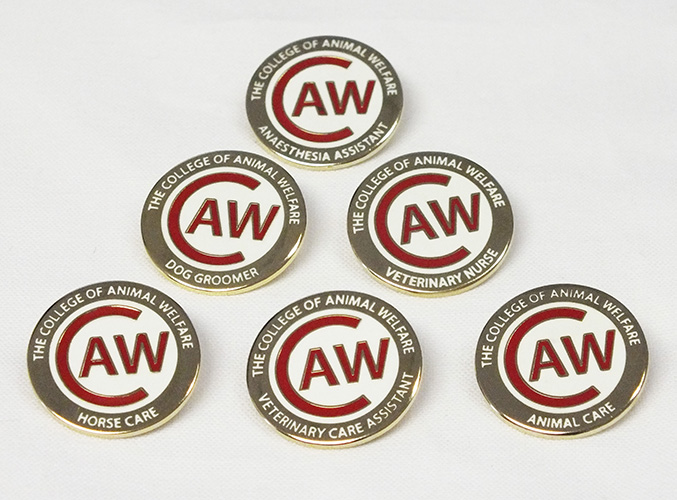
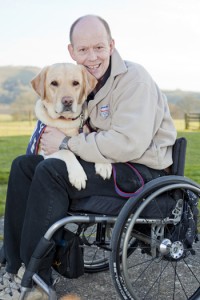 Allen Parton, the Gulf War veteran who founded Hounds for Heroes, will be this year’s guest speaker for the British Veterinary Association’s (BVA) annual Members’ Day, which will be held in Manchester on 25 September.
Allen Parton, the Gulf War veteran who founded Hounds for Heroes, will be this year’s guest speaker for the British Veterinary Association’s (BVA) annual Members’ Day, which will be held in Manchester on 25 September.